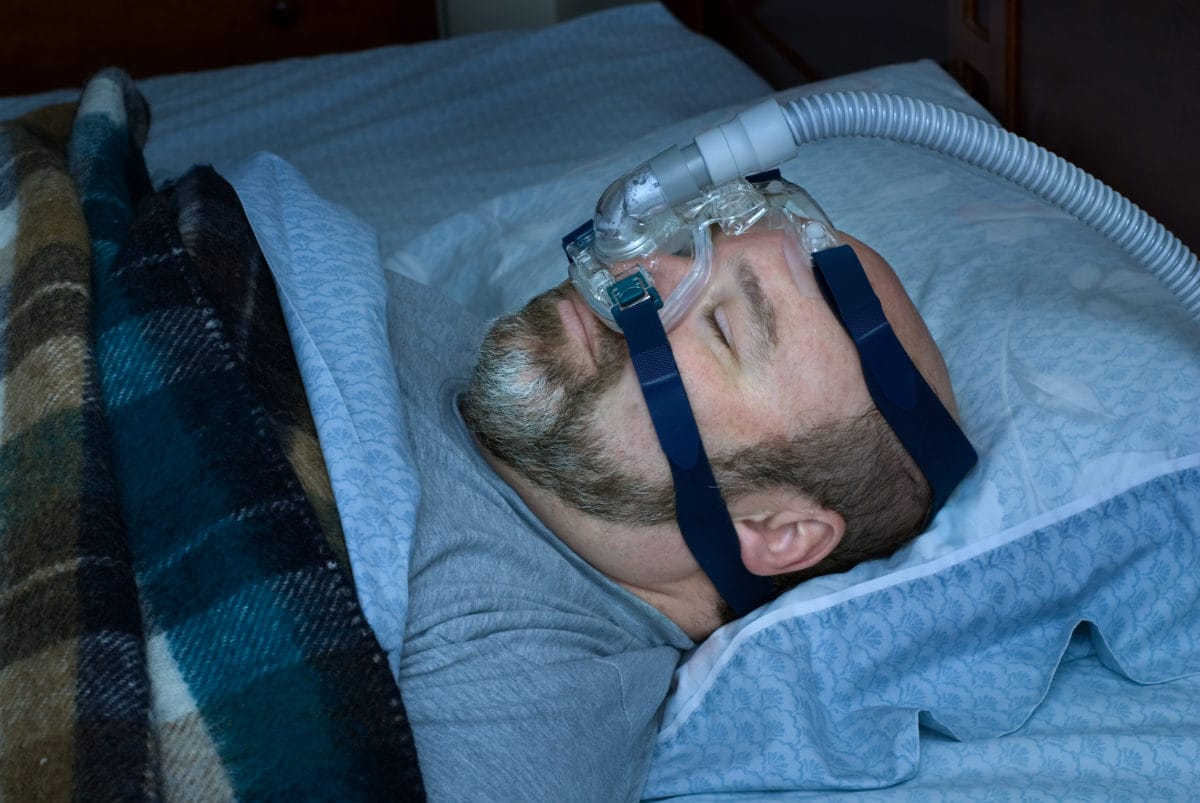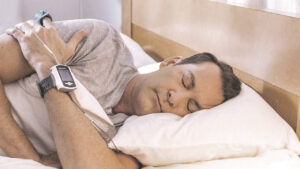
Users using CPAP masks must have sleep apnea. If you have sleep apnea, your breathing rate varies continually while you’re asleep. This might cause breathing issues and overall fatigue even after eight hours of restful sleep.
If left untreated, sleep apnea, especially obstructive sleep apnea, may exacerbate respiratory problems. It’s essential to get the best sleep apnea treatment if you want to lead a successful life. CPAP masks are the most widely available method of treatment for all sorts of patients, despite the fact that there is presently no cure for sleep apnea.
If you use CPAP, you may be aware that certain people, especially side sleepers and those with facial hair or beards, do not react well to cpap masks. But this is a myth, and we want to debunk it since many CPAP masks are known to work well for side sleepers and those with facial hair.
The difficulties people with facial hair face, the many CPAP mask alternatives accessible to patients with beards, and how to choose the best CPAP mask for each will all be covered in this article.
What difficulties do those with beards have using CPAP masks?
Patients with beards who suffer sleep apnea may have special difficulties while wearing a CPAP mask. Some of them contend that the obstruction caused by their facial hair reduces the overall effectiveness of the CPAP machine.

Bearded people may furthermore face difficulties such as:
Mask that fits loosely
Certain CPAP masks won’t properly fit over your mouth and nose if you have a beard. Wearing such loose-fitting masks while trying to get a good night’s sleep might cause discomfort and suffering.
A leak in the air
Air leakage is another issue brought on by loose-fitting masks. The fundamental goal of CPAP masks is to provide your respiratory system with enough oxygen. If there are air leaks coming from your mask, your CPAP machine could not work correctly.
Breathing problems
Loose-fitting masks and ongoing air leakage may end up causing more harm and hindering breathing compared to not wearing a mask.
For these reasons, it’s essential to choose the best CPAP mask that will function well even if you have a beard or facial hair. Some bearded CPAP users decide to wear a mask liner to prevent their facial hair from interfering with a good seal for the reasons mentioned above.
There are several type of CPAP masks.
Before we go on to the main section, choosing the best CPAP masks on the market, it is essential to understand the many types of CPAP masks that are available to you. BiPAP devices may also use these types of masks. These masks may be divided into one of three groups:
Nasal CPAP masks
The nasal mask completely encloses the nose. This kind of mask would be great for CPAP users with beards who need high pressure since it can withstand high airflow pressure. This mask is difficult to use for active sleepers.
Limitations: If you have a mustache, you may have difficulties since it may obstruct your vision.

Full-face CPAP masks
This mask does not entirely conceal your face. Instead, it covers most of your mouth and nose. This mask is suitable for those who breathe through their mouths.
Limitations: You may need to trim your beard or mustache to create place for this mask from the point where it seals your face, since it totally covers your mouth. It could fit less snugly overall thanks to your beard.
Nasal pillow masks
Nasal pillow masks are a great option if the two masks described above irritate you. The tubes in these pillows fit easily into your nose. Even though it may appear uncomfortable, pillow masks are considered to be one of the best and most useful remedies for persons with beards.
Cons: It could be difficult for you to get accustomed to this kind of mask.
CPAP Technology Advances Quickly
Early machines were rather straightforward and just needed a few tweaks to work. The most recent technology is so much more beneficial than the previous models that it is difficult to tell one from the other. They are also quieter and smaller, as well as more trustworthy and user-friendly. This is crucial since people are much more likely to use their medical equipment correctly if it is clear and unnerving.
The most modern CPAP masks Australia are sophisticated devices that provide a number of unique benefits. They are less intimidating to use since they are simple to turn on and off—some even do it automatically.
However, the most important development to date is their connectivity to a wireless network. This allows for the tracking of usage and breathing data, which has a variety of benefits, including the potential to:
- Send medical professionals sleep data so they can weigh the benefits.
- Provide employers and insurance companies with compliance information
- Remotely change settings. The ability to test and troubleshoot remotely is offered by CPAP suppliers.
When transportation companies want drivers to show compliance, smart devices are necessary. Additionally, new technologies incorporate everything learned as a result of past mistakes, yielding far better results.
Insurance Will Frequently Cover Replacement
Private insurance often pays for a full replacement of CPAP equipment every five years, despite the fact that the average lifetime of CPAP equipment is roughly 20,000 hours. Although Medicare and Medicaid have certain unique rules, they often cover the cost if a replacement is a demonstrable need. In the event that a device is destroyed or stolen, replacement may be covered even sooner.
How to decide when to replace your CPAP masks
If a customer is renting a CPAP, you may need to compare the benefits of replacing it with the return on investment. However, because insurance often pays for a substantial percentage of the cost, it is in everyone’s best interest to keep your customers informed about any indicators that could indicate a new unit is necessary. If the snoring becomes worse or the symptoms come back, the machine has to be examined. Any changes to warning lights or noises should be reported right away.
It is not advised to throw away used CPAP masks. As with any medical electronic waste, you must handle them with a certified electronics recycler.



